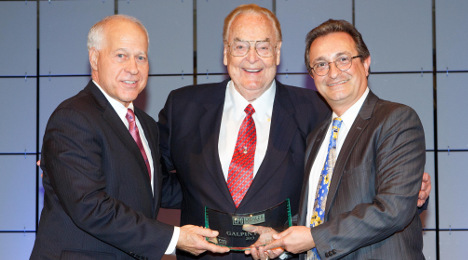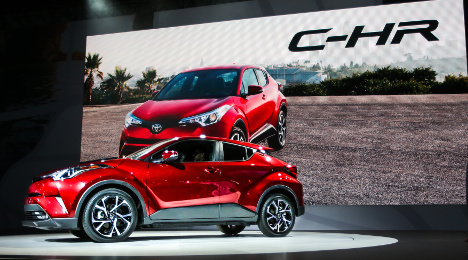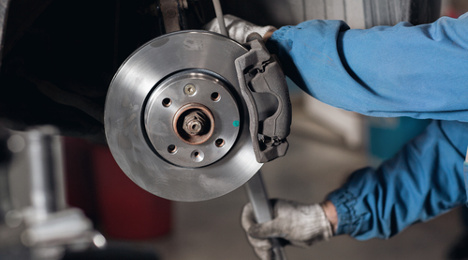Recall Masters has a new partnership to integrate its real-time vehicle recall lookup solution into Record360’s vehicle condition reporting app. And this collaboration aims to help dealers and rental agencies avoid claims disputes when putting drivers in vehicles during recalls.
The enhanced transparency and real-time recall updates are brought by the integration, following new legislation concerning vehicle safety recalls passed just last summer.
Lawmakers addressed rental car agencies need to fix any and all open safety defects before renting out vehicles to customers.
The legislation established a fine of $5,000 if a consumer is put into a rental or loaner vehicle with an outstanding recall, Recall Masters explained in a news release announcing the partnership.
“Countless damage disputes impact relationships, customer satisfaction, and cause negative reviews,” said Recall Masters president Chris Miller. “Vehicle condition and claims management processes is dependent on paper or low-fidelity digital reporting and Record360 fills the gap with a modern solution.”
Dealerships and car rental agencies can automate their asset management by digitizing vehicle conditions reviews via Record360’s condition reporting software.
The software is designed to help prevent customers being put into a rental or loaner vehicle with an existing recall, as well as end customers’ ability to claim they did not cause damage to a loaner or rental.
“Our integration with Record360 ensures that the user is informed of any open recall in real-time while the initial inspection is done. This helps build trusting relationships between automotive dealers or car rental agencies and their customers,” added Miller.
The second-quarter dealer survey orchestrated by KeyBanc Capital Markets confirmed how used-vehicle and F&I performances are helping to pick up the slack dealerships might be experiencing within the new-car operations.
The report shared this week with Auto Remarketing indicated trends in F&I gross profit per unit maintained a favorable trend with 86 percent of respondents reporting intact results in June or even increasing figures by more than $50 year-over-year).
For the full quarter, 90 percent of participating dealers noted flat or increasing gross per unit coming out of their F&I offices as 51 percent reported an increase and 39 percent reported flat results. The remaining 10 percent acknowledged a decline, according to KeyBanc’s report.
When it comes to used vehicles, KeyBanc determined the responses “remained mixed” when reviewing gross per unit on used deliveries. In June, 29 percent of respondents enjoyed a year-over-year increase of more than $50 while that same amount sustained a decline of at least $50. The remaining amount of dealers surveyed reported a “relatively intact trend.”
Looking at the full second quarter, KeyBanc found that the trend wasn’t much different, with 37 percent reporting an increase, 29 percent reporting a decline, and 34 percent reporting unchanged gross per unit for used-vehicle turns.
Meanwhile, the report pointed out that surveyed dealerships “faced renewed pressure” when it came to grosses on new-vehicle sales. A total of 86 percent of respondents reported a decline of more than $50 in July compared to this time last year.
For the full second quarter, 60 percent of respondents reported weakness in the segment, KeyBanc said.
“While we believe sales will pick up in the back half of the year, the risk appears to be to the downside,” KeyBanc added.
Also of note, the report added that parts and service gross margins remained intact, according to survey results. A consistent majority of respondents — 71 percent in June and 72 percent for the full quarter — reported a 100 basis points or more increase in parts and service gross profit margin.
Analysts closed the latest survey report by mentioning how trends spotted involving used- and new-vehicle sales is likely to continue since the amount of off-lease units available is high.
“We believe as inventory of attractive, late-model low-mileage used vehicles continues to increase, we will continue to see some new car buyers shift into the late-model used vehicles,” they said.
General Motors’ Customer Care and Aftersales division recently announced at NACE automechanika Chicago that the company will offer a comprehensive collision certification program, which will start early next year.
The new program will be more comprehensive than the current GM training and tools-focused programs, the company said.
It will include added standards for both pre- and post-repair scanning, calibration, overall repair and build on existing GM programs, according to the company.
“Today’s certification programs have to evolve to keep up with the rapid-fire pace of technological innovation in the auto industry, especially in areas like safety systems,” GM Customer Care and Aftersales collision manager John Eck said in a news release. “Our new program is being designed to measure critical behaviors and procedures that will help ensure every collision repair is done to the highest standards, whether the work is done at a dealership, an independent body shop or by a multi-shop operator.”
Currently, GM Customer Care and Aftersales is working with companies like Mitchell International and Enterprise Holdings in the development of the certification.
Both companies share a common goal of wanting to ensure vehicle repairs are proper and of quality, according to GM.
In a position statement issued last year, the company said all vehicles being assessed for collision damage repairs must be tested for Diagnostic Trouble Codes. And following repairs, vehicles must also be retested to verify the existence of pervious and/or new faults.
Additionally, GM said it is interested in including technologies like OnStar’s, to give drivers information regarding qualified collision repair facilities using both a vehicle’s location and unique crash severity.
“With Automatic Crash Response, OnStar is typically the first to know an incident has occurred,” said Brian Hoglund, OnStar Commercial Experience director for GM.
“Depending on the vehicle’s repair needs and driver’s well-being, OnStar has the ability to help streamline the repair process while making the experience more convenient for our customers,” he said.
Insurance Auto Auctions recently launched Active Inventory Management, the company’s latest innovation designed to help buyers and sellers outsource their salvage inventory management process to IAA.
“IAA developed the Active Inventory Management solution to help our insurance customers streamline their salvage management process and generate better economic returns,” IAA chief executive officer and president John Kett said. “IAA is committed to providing the tools, resources and technology needed to deliver an unmatched customer experience. Active Inventory Management is the latest enhancement in this effort, and early adopters have already seen improved results in returns, cycle time and internal expense.”
Using IAA's CSAToday platform, the new solution can regularly monitor vehicles, identify issues and coordinate any resolutions through its dedicated customer service team.
CSAToday is the salvage industry's first mobile vehicle inventory management tool, boasts the company.
Additionally, Active Inventory Management currently offers a turnkey alternative that can boost APD process efficiency, according to IAA.
“As an industry leader in technology and innovation, IAA continues to develop new capabilities like Active Inventory Management that address and anticipate the needs of salvage buyers and sellers,” the company added.
Dashboard Dealership Enterprises has redesigned its business analytic reporting suite for increased functionality using input from dealer clients.
Executive Eye 3.0, the latest version of Dashboard’s flagship product, offers a variety of graphic display options designed to help dealers easily navigate the program.
New visual enhancements include updated colorful themes, more white space and increased organization.
"Reporting has always been clunky, time consuming; often it’s difficult for dealers to understand how numbers translate into actionable data," Dashboard Dealership Enterprises chief executive officer Josh Blick said in a news release. "Executive Eye 3.0 is a groundbreaking tool that completely changes the paradigm of how a business analytic reporting tool can be used. Instead of spending time compiling reports, managers instantly have actionable data at their fingertips."
In beta testing, Executive Eye 3.0 exhibited a 30 percent increase in dealership usage compared to an average usage of 2.0, according to Dashboard.
The suite’s direct messaging capabilities allow dealers to communicate directly with Dashboard's customer support and other users. The messaging tool’s reports, alerts and comments can all be shared without the need to compose emails outside of Executive Eye.
Additionally, Executive Eye’s Consolidated Doc report allows dealers to instantly combine documents from individual stores into a single report.
Dealers interested in performance comparison can also view key performance indicators from each of their stores side-by-side.
Executive Eye 3.0 is mobile-friendly across all platforms and devices. A mobile application download is not needed to access the software on a mobile device.
A previous recipient of the CPO Dealer of the Year Award, southern California’s Galpin Motors recently announced its chairman and chief executive officer, Bert Boeckmann, was presented with Ford’s first Dealer Hall of Fame award in recognition of his lifetime of achievement, outstanding performance and inspirational leadership.
Additionally, Galpin Ford received more than 12 additional awards including being recognized as the No. 1 volume Ford dealership for a record 27 years in a row.
“The objective criteria is really, which of the dealers in this top volume group are universally admired, respected and loved by folks at Ford Motor Co., Ford Credit, by their employees and especially by other Ford dealers?” asked Mark LaNeve, Ford’s vice president of marketing sales and service to cheers from Galpin employees during a taped awards ceremony.
“It was my great honor to induct Bert Boeckmann into the Inaugural Ford Hall of Fame,” LaNeve added.
Boeckmann joined Galpin in 1953 as a salesman, and by 1957 at the age of 26, Boeckmann was general manager of the company. By 1968, he became president and majority stakeholder and the rest is history.
Today, Boeckmann is widely recognized as the most honored and successful automobile dealer in America. He has achieved a record of success for a single franchise, single location dealer that is unparalleled in the automotive retail industry and he constantly sets new industry standards for excellence.
During Used Car Week 2013 in San Diego, Boeckmann and Galpin Ford claimed the honor as the CPO Dealer of the Year; at the time just the third recipient of the accolade.
“My father is the most honest man I know, the hardest working person I know and sincerely cares about every customer and employee!” said Beau Boeckmann, president and chief operating officer of Galpin Motors. “Without his dedication to our customers and employees, Galpin would not be where it is today. I’m thankful to Ford for their support and recognition, and I couldn’t think of a better first-time recipient than my dad.”
Galpin, which celebrated its 70th anniversary last year, has always been a pioneer in the dealership industry, which is due in large part to Boeckmann’s leadership and forward-thinking.
In the 1960s, Galpin began leasing vehicles to individuals before dealerships were even leasing to companies. In 1966, Galpin opened America’s first in-dealership restaurant, The Horseless Carriage, which is still a success today. The dealership also coined the term “Galpinizing” for its world-renowned custom vehicles.
Today, Galpin operates 12 franchises in addition to its customization shop, Galpin Auto Sports.
Asbury Automotive Group will be exiting its Q auto used-car standalone store business, chief operating officer David Hult said on a quarterly conference call Tuesday morning.
A company spokesperson said via email that the closing process began at its two remaining Q auto stores — which are located in Brandon, Fla., and Tampa — on Monday.
Most likely, Asbury will sell the physical properties. As for the inventory at those stores, the dealer group plans to distribute it to other Asbury stores, the spokesperson said.
The company is “currently attempting to reposition employees to other areas within our organization,” the spokesperson said.
During Tuesday’s call, Hult said the closure of Q auto does not mean the group is slowing down its emphasis on used vehicles.
“With our investments in digital technologies and lead management initiatives, we have reassessed our brick-and-mortar investment in Q auto and made the decision to exit the remaining two locations,” Hult said. “With this decision, we are not decreasing our emphasis on used-vehicle sales.
“Rather, we are focusing our investments and resources on alternative routes to market that we believe will provide a superior return,” he said. “Our attention to the used-car business is evident by the more than 500 basis point-increase in our used-to-new ratio this quarter.”
In the Q&A portion of the call, chief executive officer Craig Monaghan downplayed the financial impacts associated with the used-car standalone store project.
“The financial impact (of Q auto) in the quarter was immaterial; the financial impact going forward of not having Q auto will be immaterial,” he said.
Despite Asbury not being able to pull down “an attractive ROI” from Q auto, Monaghan said the company does not regret making the investment.
“I think it was something that we had to try,” he said.
Monaghan went on to note two primary learnings the retailer took away from the Q auto project.
“One is, it’s all about where you source your inventory,” he said. “And if you’re going to auction to buy a car, you’re the last one with your hand up. And that’s not a situation we wanted to be in. We really have come to the conclusion that we can move our traded vehicles to our stores as effectively or more effectively than we can move them to an off-site location.
“And secondly, we learned that a lot of those buyers are going to be subprime buyers,” Monaghan said. “And that without the captive finance company, running a standalone used-vehicle operation, you are somewhat at a disadvantage.
“We decided strategically that we did not want to be in the business of lending money to used-car buyers,” he said. “And take that all together, we’ve made the decision to exit the business.”
Toyota, Kia and Tesla are the brands that online consumers are shopping for the most this year, according to Jumpstart Automotive Media's latest shopper study released on Monday.
Jumpstart’s June Path to Purchase report highlights the vehicle segments, makes and models that captured the largest share of online car shoppers during the first half of 2017.
Toyota's overall brand share increased to 7.1 percent, a 15-percent increase over the past year. The Toyota Camry, Camry Hybrid, Highlander Hybrid and C-HR each saw gains of 56-percent, 84-percent, 65-percent and 728-percent, respectively.
This year, Kia raised its overall brand share to 3.1 percent, a 36-percent increase compared to June of last year.
In addition to its popular Soul and Sorento models, much of Kia’s popularity stems from its recently launched new 2017 hybrid subcompact SUV Niro and its redesigned Rio model, according to Jumpstart.
“New and redesigned models will often win the attention of car and truck shoppers, especially when new styles, features and performance are highlighted,” Jumpstart vice president marketing and strategic insights Libby Murad-Patel said in a news release. “That being said, we’re keeping a close eye on the subcompact utility space, which offers a unique blend of versatility, comfort, value and functionality that appeals to a wide range of consumers.”
Additionally, though Tesla has an overall small percentage of shopper interest on Jumpstart sites, its brand share has risen to 1.0 percent, a 122-percent increase for the growing U.S. brand.
With a sizable 224-percent increase in interest over the past year, Tesla’s Model X has impacted much of its overall shopper interest growth, according to Jumpstart.
Through a new partnership with automotiveMastermind, Volkswagen dealerships can now use both the company’s behavioral analytics and marketing automation in efforts to increase store sales and customer retention rates.
"Volkswagen has long established itself as producing high-quality, exciting cars and this is the perfect opportunity to integrate predictive analytics into their sales process," automotiveMastermind vice president of sales and marketing Andrew Gillman said in a news release.
"Through the use of behavioral prediction and analytics, VW will be able to offer their dealerships the ability to increase sales and customer retention with measurable results," he said.
automotiveMastermind’s proprietary technology takes thousands of data points from dealer management systems and mixes it with Big Data such as social media profiles, financial records, product and consumer lifecycle information and socio-demographics.
Once combined, the data is distilled down to one simple number from zero to 100. The number represents the Behavior Prediction Score, a ranking that reveals to dealers which customers are likely to buy.
"Our technology helps dealers find and retain customers by giving their sales team easy access to know which customers are ready to buy and the exact reasons why," said automotiveMastermind chief executive officer and co-founder Marco Schnabl. “We deliver superior customer service that underpins our commitment to our dealer, resulting in a true partnership."
Additionally, Mastermind partners such as Volkswagen also benefit from customer-specific talking points and highly personalized marketing campaigns the company provides.
PartCycle Technologies recently introduced an upgraded online used-car-parts platform (PartCycle.com) designed to give dealers an efficient way to get the parts they need for their service/parts customers.
The company offers an online recycled auto parts marketplace.
In a news release, the company gives the example of University Toyota in Tuscumbia, Ala., which since integrating PartCycle into its service operations, has been able to make more service transactions.
The dealership credits PartCycle’s offerings for its recent growth because they have been able to get quality low-cost OEM parts options, and that pleases customers.
"We see customers who need to fix their car, but simply cannot afford the new part cost," University Auto Family fixed operations director Owen Kilmury said in a news release.
"Some customers have had to forego the recommended repair service because of part cost. PartCycle allows a dealership to retain a customer that we otherwise would have lost due to the price of certain new parts. The customer gets a quality part, at a fraction of the price, and the dealership retains a customer that otherwise would have been lost," he said.
PartCycle currently has over 4 million parts in stock and carries an inventory sourced from 55-plus professional automotive recycler locations across the U.S.
"We get all the options we need in a single PartCycle search," said parts manager Chris Britt of University Toyota. "I've spent the better part of a day just waiting on callbacks for parts, but with PartCycle I find what I need quickly and easily, then can include those options in customer quotes. Then they can get what they need for their vehicle."
Additionally, PartCycle currently offers free shipping, standard 180-day warranty coverage and 30-day returns on all parts.












